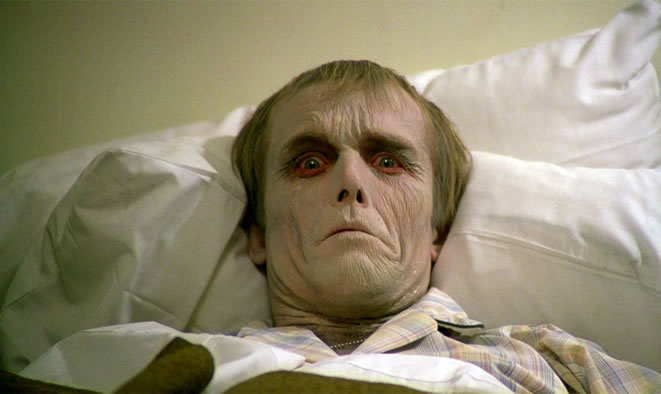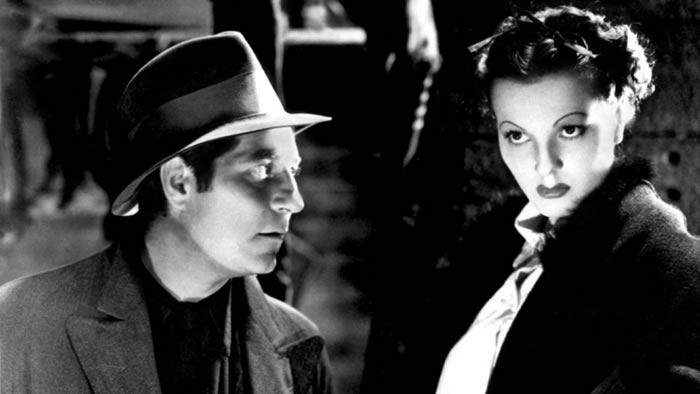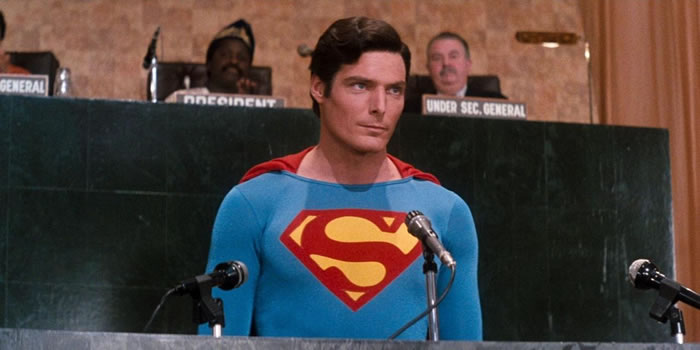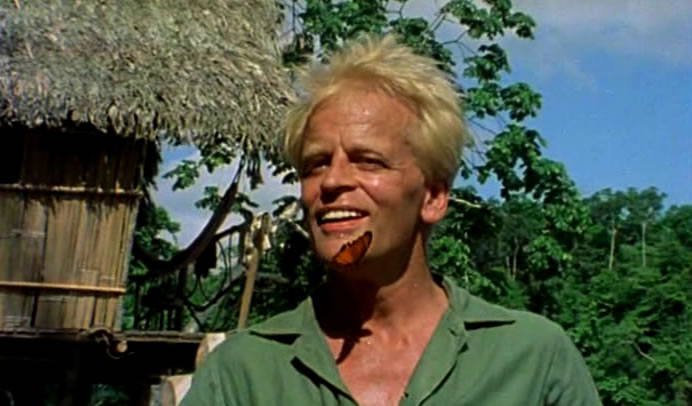Written and directed by George Romero. 1978.
In the DVD audio commentary featuring Romero, his ex-wife Christine Forrest, and make-up/stuntguy Tom Savini, Forrest spends a lot of time lamenting the fact that no studio's ever given George the money to make the kind of movie he really wants to make. It's a weird kind of apology for a great flick. That's the way it is with me, Romero shrugs. And that's why your movies are great, Savini adds. And, admittedly, going against the principle of Orson's No, a bigger budget didn't do much for the late-in-life sequel Land of the Dead except bring it closer in line with every other zombie movie released these past couple of years. We forget that the zombies in Dawn are all gray pancake and stiff walks. Squibs made with tin can lids and condoms. Boris the Dummy under the wheels of a garbage truck. Man. This movie's a romp.














